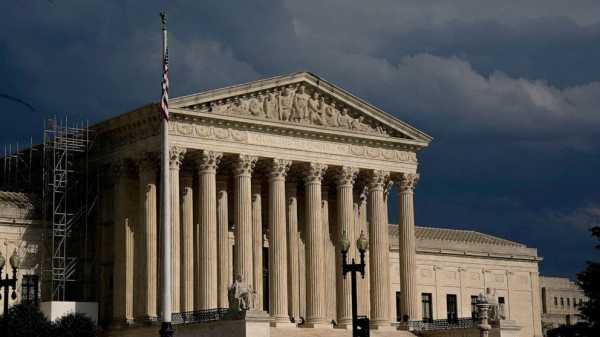The Supreme Court on Thursday set new limits on affirmative action programs in cases involving whether public and private colleges and universities can continue to use race as one factor among many in student admissions.
The court held, in an opinion for the conservative majority written by Chief Justice John Roberts, that Harvard and UNC's admissions programs violate the equal protection clause of the Fourteenth Amendment.
MORE: Affirmative action: What to know about the Supreme Court cases
The vote was 6-3 in the UNC case and 6-2 in the Harvard case, due to the recusal of Justice Ketanji Brown Jackson. Jackson had served on the board of overseers at Harvard, where she earned her undergraduate and law degrees.
Jackson, Justice Sonia Sotomayor and Justice Elena Kagan dissented in the two cases.
What the court said
The blockbuster cases put affirmative action, which has been used for decades by colleges and universities to address inequality and diversify their campuses, in the spotlight. The Supreme Court had repeatedly ruled since 1978 schools may consider the race of applicants in pursuing educational benefits from a diverse student body, so long as it was one factor among many considered and the schools did not use a quota system.
Students for Fair Admissions, a conservative group, sued Harvard University and the University of North Carolina over their race-conscious admissions programs, alleging intentional discrimination toward Asian American applicants.
The Supreme Court ruled in favor of the group in a decision that will have major ramifications for the college admissions process in the U.S.
"Both programs lack sufficiently focused and measurable objectives warranting the use of race, unavoidably employ race in a negative manner, involve racial stereotyping, and lack meaningful end points," Roberts wrote. "We have never permitted admissions programs to work in that way, and we will not do so today."
What it means
The court's decision undercuts more than 40 years of legal precedent and is a blow to schools that say race-conscious admissions programs are vital to building a diverse student body.
The impact will be felt most immediately in the college application process set to begin this fall for hundreds of thousands of high school students. The Common App, which is used by a million of students each year to apply to several colleges at once, has already updated its systems to allow schools to hide the race or ethnicity of an applicant.
The Supreme Court ruling appears to preserve some consideration of race in a narrowly tailored way, such as through an individual applicant's essay or narrative.
"At the same time, as all parties agree, nothing in this opinion should be construed as prohibiting universities from considering an applicant's discussion of how race affected his or her life, be it through discrimination, inspiration, or otherwise," Roberts wrote.
But it leaves many unknowns about how exactly issues of race raised in student essays be factored into decisions and whether schools can extend minority-focused scholarships and recruitment programs.

The U.S. Supreme Court building is seen in Washington, D.C., on April 6, 2023.Elizabeth Frantz/Reuters, FILE
The court said that it has "permitted race-based admissions only within the confines of narrow restrictions. University programs must comply with strict scrutiny, they may never use race as a stereotype or negative, and — at some point — they must end."
MORE: Supreme Court affirmative action decision could impact racial equity in higher ed
Students for Fair Action celebrated the court's decision and said it intends to litigate should schools "defiantly flout this clear ruling."
UNC, in a statement, said while it's not the decision it had hoped for, it will take steps to comply with the law and ensured the school remains "committed bringing together talented students with different perspectives."
In a footnote on page 22 of his opinion, Chief Justice Roberts made clear that U.S. military academies may continue to use race-based admissions programs because of "potentially distinct" and "compelling" interests for the government and national security.
The dissents
Justice Sotomayor said the court's decision "rolls back decades of precedent and momentous progress." Sotomayor, who has praised the benefits of affirmative action in her life and career, read her dissent aloud from the bench.
"It holds that race can no longer be used in a limited way in college admissions to achieve such critical benefits," she wrote. "In so holding, the court cements a superficial rule of colorblindness as a constitutional principle in an endemically segregated society where race has always mattered and continues to matter."
Justice Jackson, the first Black woman to serve on the court, accused the majority of a "let-them-eat-cake obliviousness" on the issue of race.
"But deeming race irrelevant in law does not make it so in life," Jackson wrote in a strong dissent from the UNC decision. "And having so detached itself from this country's actual past and present experiences, the Court has now been lured into interfering with the crucial work that UNC and other institutions of higher learning are doing to solve America's real-world problems."
Sourse: abcnews.go.com






